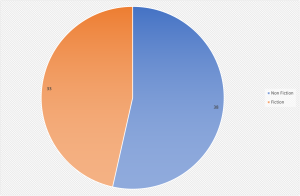Here we go:
Article: “A Mixed-Use Megacomplex In China, Built On Humanism” by Kelsey Campbell-Dollaghan
This piece describes a new building complex designed by Steven Holl in Chengdu. It is called “Sliced Porosity Block,” which rolls right off the tongue. I don’t know that I quite buy the author’s frame for the piece— that Holl is a “humanist,” and as such has designed a mixed-use complex that may actually work— but it seems clear that he does take organic metaphors further than many architects, seeing nature as inspiration for more than just shapes. Mostly, though, these buildings just look very cool, and more than a little unreal; they are the kind of thing you see all the time as a computer rendering, but that never actually gets built. And yet, they are done and open. You can see some more pictures here: http://www.archdaily.com/319825/sliced-porosity-block-steven-holl-architects-by-hufton-crow/.
Unintentional Conversation: “How My Creativity Got Killed” by Paul Miller and Blog Post: “The Searchers” by Nicholas Carr
The second week in a row with a post by Paul Miller. As I mentioned last time, he is in the middle of a year without the internet. That would be a tough thing for many people (me included), but Miller works at a technology website, which adds to both the inconvenience and interest of his experiment. This short piece is one of his periodic updates about life offline, and it begins with his time spent at the recent Consumer Electronics Show (CES), where technology and media companies come to show off their big new products. Miller finds himself bored and disenchanted with all the big new shiny, at least in part because none of it asks him to do or make anything of his own, to contribute in any way. Being offline, he has spent less of his time engaged in consumption of “content” (there’s a great bit toward the end about that term) and more time creating things. This isn’t exactly a deliberate choice; it’s just that he has had fewer things to “keep up with.” This is kind of an obvious point, in the end, but one side effect of having lots of compelling choices is often that we cease to feel like we have a choice at all.
Enter Google (and many others), who are trying to help us stem the tide and “surface” the things we most want to find. I’ve written about Eli Pariser’s concept of “filter bubbles” here before; this is the idea that both the way we use the internet naturally and the deliberate personalization of our experience by web service companies tends to restrict what we see and hear to a limited set of ideas and images. Not only do we tend not to connect nearly as much with people with whom we really disagree, the various websites and services that bring content to us increasingly make guesses about what we would like to see and bring us only that. Moreover, they generally do this invisibly, so that we are not aware of the way in which things are being filtered for us. The most alarming example, for me, is Google, who tailors its searches geographically as well as for each individual user. Here, Carr notes that Google is in fact moving further in this direction, hiring Ray Kurzweil to help them move toward the ultimate goal of giving you the information you want before you ask for it. That, obviously, involves making guesses about what it is that you will want, and their success will depend on how well they make those guesses. But reaching that goal to any extent involves even more of the process by which the guesses are made behind the scenes; you will not see the difference between a flat, unpersonalized search and the one designed to match your preferences and interests— and you won’t see anything that doesn’t match those interests, the interests you already have.
This touches on Miller’s concerns about creativity in that creativity is about making new connections between things and ideas, and we are less likely to do that if we are exposed to fewer ideas in the first place. The filtered internet experience is built on the assumption that we are consumers of “content” first and foremost, and that as consumers our main concern is making good choices about what to receive. As consumers, seeing something too far outside the bounds of our expectations is usually a bad thing; the goal is to find stuff we will like. If, alternatively, you think of yourself primarily as creative, in some sense, then getting the widest possible exposure to different experiences of all kinds becomes extremely important. Filtering our internet experience— especially in ways that we don’t know about or control— undermines that.
So, the question, assuming we want to be in some sense creative people, is how we can best balance the need for a wide range of experiences with the need for time to make things instead of just consuming them. One answer, suggested by people like Maria Popova over at http://www.brainpickings.org, is “curation”— letting people whose taste you trust and find interesting find stuff for you— but I don’t know that this avoids the really filter problem, even if it has the advantage of greater transparency.
Song: “Honey” by Torres
Pitchfork compared this to early Cat Power, and that’s both a very high standard and, in this case, reasonable. This is also, by the by, a good example of when the new, internet-permeated world of music seems like a good thing; Torres recorded this on her own and put it out be herself, without a record label, and put it up for sale in several, easily-accessible digital venues (Amazon, iTunes, etc.) Now it gets a high score on Pitchfork and will sell, at a guess, a good 25,000 copies (that really is a total guess, but it doesn’t seem crazy). That is not a lot, but fifteen years ago a record matching that description would have been lucky to move 500; it probably would have been called a “demo,” circulated at shows and street corners on CD, and seen mostly as a way to get signed by a label that could secure wider distribution. So the greater openness of the new media landscape seems to work to her benefit, while the lower revenues probably make little difference in her case. I can’t be sure things will actually work out this way, but it’s a possibility that wasn’t there before.
Speaking of which:
Article: “Information Wants to be Free, But the World Isn’t Ready” by R.U. Sirius
The line of argument here gets a bit muddy, and I am personally more than a little put off by the neo-Marxian language (“crisis of late capitalism,” etc.), but the point the author ends up making is an important one. Our celebration of free and cheap access to creative products— music, writing, whatever— remains a problem for the creators because the rest of the economy has not changed along with these areas. In other words, we have not generated any new economic paradigm; we’ve just completely devalued certain kinds of labor and their products. For these new mechanisms of production and distribution only make sense if we also create other ways to assure that the people who create these things can maintain a decent standard of living, without really getting paid directly for their work. Because it’s not that we actually don’t value cultural productions— we value them a lot; rather, their market value has vanished. So it needs to be possible for work that has low or no market value, but high social value, to remain a viable way of making a living, and that in turn requires different economic arrangements than those that obtain right now.
Video: “Eclipse/Blue” by Nosaj Thing
Nosaj Thing just released a new album; this is a song from that. It has the girl from Blonde Redhead doing the vocals. I like it.


